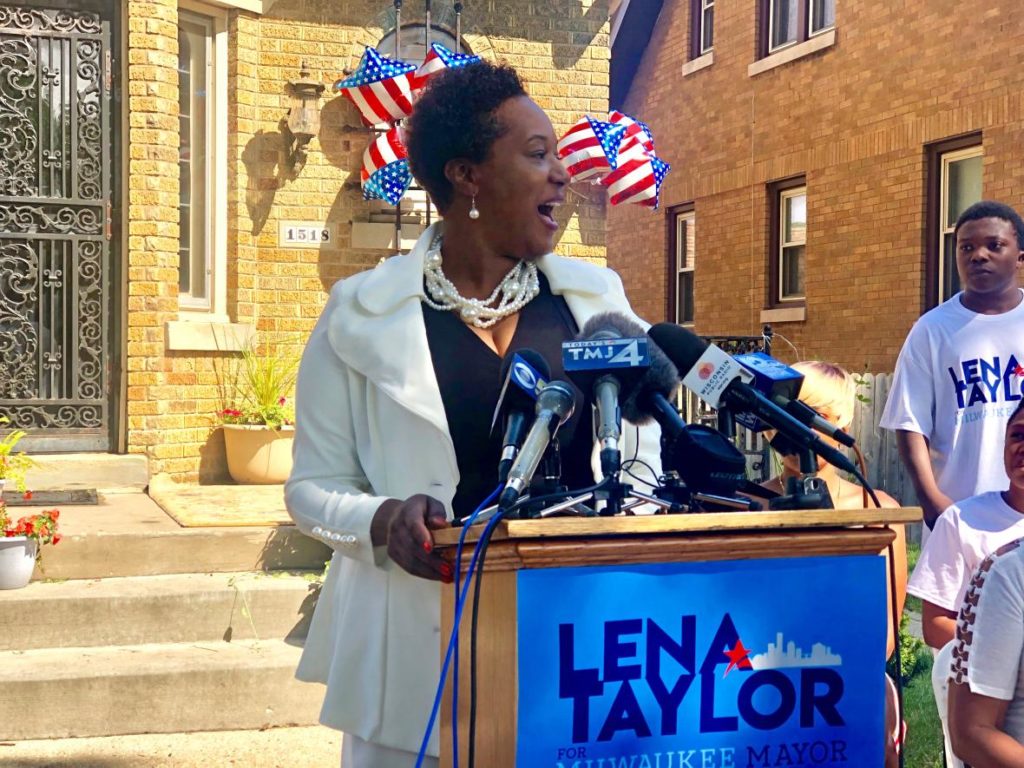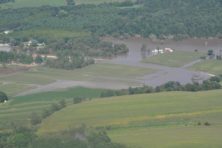State News: FEMA Money to Deal with Flooding Aftermath
- Share
- Tweet
- Pin
- Share
Some county leaders in Wisconsin say federal disaster funding is critical for local communities trying to recover from the impact of yearly flooding. Gov. Tony Evers announced last week that the Federal Emergency Management Agency (FEMA) will provide public disaster assistance to 17 Wisconsin counties and two tribes that were affected by flooding, tornadoes and severe storms in July.
La Crosse, Monroe and Vernon counties are covered under this year’s FEMA declaration and also received FEMA funds last year following late-summer flooding.
Farmers across Wisconsin also have access to new federal funding in exchange for taking flood-prone fields out of production. The state’s Natural Resources Conservation Service Office has more than $7 million in federal money to create permanent easements on farmland impacted by recent flooding. The U.S. Department of Agriculture agency said in a recent news release that it wants to “provide landowners with another option for those frequently flooded agricultural fields.”

State Sen. Lena Taylor announces her bid for Milwaukee mayor Sept. 3 outside her home on the city’s north side. Photo by Alana Watson/Wisconsin Public Radio.
Sen. Lena Taylor Announces Bid for Milwaukee Mayor
Democratic state Sen. Lena Taylor of Milwaukee has announced her bid for Milwaukee mayor, joining a field of others who seek to unseat current Democratic Mayor Tom Barrett, who is expected to run. Taylor said she is running for the office to build collaboration and help the city progress.
“I don’t like a Milwaukee that blocks progress instead of figuring out how to connect hands and build collaboration,” she said. “I refuse to sit on the sidelines and continue to let that happen.”
Taylor called Milwaukee’s leadership corrupt, saying, “When you blatantly know you are the worst and you specifically do not address it at a pace that suggests urgency, I call that a cancer that needs to be eradicated.”
Taylor was born in Milwaukee and graduated from Rufus King High School. She earned her bachelor’s degree from the University of Wisconsin-Milwaukee and her law degree at Southern Illinois University-Carbondale. Taylor served as the district commissioner of the Milwaukee Metropolitan Sewerage District from 2010 to 2014.
Taylor was elected to the state Assembly in a special election in 2003. She was first elected to the state Senate in 2004 and has served ever since. Barrett has been mayor of Milwaukee since 2004.
Scientist: Changing Soil Management Could Improve Crops
A recent report from the Intergovernmental Panel on Climate Change shows that North America’s cropland soils have lost about half of their natural carbon and states that land degradation poses “one of the biggest and most urgent challenges” facing humanity.
Part of the solution could be in changing how we farm – which could make farms more productive and profitable in the process, said David Montgomery, a University of Washington soil scientist and the author of Growing a Revolution: Bringing Our Soil Back to Life.
Montgomery likens the microbes in the soil to those in the human gut. The bacteria and fungi in the soil help plants acquire mineral nutrients and support their defensive systems.
Plowing up fertile agricultural soil – which accelerates the decay of organic matter – speeds up the release of carbon back into the atmosphere, he said. Conventionally tilled soils erode at rates 100 times faster than they form, according to the report.
Montgomery pointed to a University of Washington study in the early 1980s that looked at the amount of carbon added to the atmosphere since the Industrial Revolution.
“(It) found roughly a third of the carbon that had been added to the atmosphere up to about 1980 was from plowing up the Great Plains, plowing up Eastern Europe, from agricultural impacts that degraded soil fertility through the loss of soil organic matter,” he said.
Although the news sounds grim, Montgomery said there’s potential to put some of that carbon back into agricultural soils – changes that also could be more profitable for farmers because they harvest as much but spend less to do it.
“That’s where I started to turn into a real optimist on this issue,” he said. “And it didn’t take that many years, just a couple in most cases, to start the trajectory of soil restoration back to the point where yields came back and recovered to where they were before the transition.”
Latest Wolf Count Provides Evidence Population Is Stabilizing
State officials say the state’s latest wolf count is further evidence that Wisconsin’s wolf population might be stabilizing. Volunteer trackers reported between 914 and 978 wolves from April 2018 to April 2019, according to the Wisconsin Department of Natural Resources (DNR).
Scott Walter, a DNR large-carnivore specialist, said that’s about a 1 percent increase from the last monitoring period.
“The last three winter track surveys suggested fairly similar numbers of wolves, and that follows really two decades of sustained population growth,” said Walter. “It looks like numbers are leveling off.”
Walter said the data indicate wolves have reached the extent of suitable habitat statewide. The animals have encountered less forest cover, more agriculture and more people as they’ve spread southward. The DNR reported a slight increase in the number of wolf packs and wolves killed last winter. Vehicle collisions and illegal killings remained the leading cause of death in reported cases.
As many as 5,000 wolves once roamed the state, but the animals were hunted nearly to extinction. In 1980, the state had 25 wolves, according to the DNR. After recovery efforts, the federal government delisted the gray wolf in the western Great Lakes region in 2012. However, the animal was placed back on the endangered species list after a federal judge’s ruling in 2014.
Earlier this year, the U.S. Fish and Wildlife Service proposed removing protections nationwide. Republican state lawmakers and a bipartisan effort by Wisconsin congressional representatives have pushed legislation to delist the wolf.
Wisconsin Public Radio, © Copyright 2019, Board of Regents of the University of Wisconsin System and Wisconsin Educational Communications Board.

